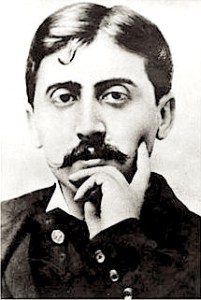The best facts about French literature
French literature has often been one step ahead of the literary curve, to risk mixing our progressive metaphors. Before T. S. Eliot and other Anglophone poets had found a way to write about the modern city, Charles Baudelaire had already shown a way forward. In the realm of medieval romance, French writers and troubadours led the way. Gustave Flaubert influenced James Joyce, Henry James, and countless others. So, in this post, we thought we’d pay homage to French literature and Francophone writers by sharing a dozen of our favourite interesting facts about French writers and French literature.
The most popular novel among soldiers in the American Civil War was Victor Hugo’s Les Miserables.
Georges Perec wrote a novel, La disparition, without once using the letter ‘e’ (apart from four times on the title-page, presumably, when the author’s name is cited).
French philosopher and critic Roland Barthes was killed by a laundry van.
French writer Colette started her working day by picking the fleas off her cat and would write only on blue paper, by artificial light, in her bare feet.
 French poet Arthur Rimbaud wrote all of his poetry as a teenager; he gave up creative writing altogether aged 19.
French poet Arthur Rimbaud wrote all of his poetry as a teenager; he gave up creative writing altogether aged 19.
The Prix Goncourt, France’s premier literary prize, is a cash payment of 10 euros.
French writer Gerard de Nerval took his pet lobster for walks in the Palais-Royal.
In 2004, French author Michel Thaler published a novel, Le Train de Nulle Part, containing no verbs.
Marcel Proust often slept in till 6pm and took opium at breakfast with his coffee and croissants.
Gustave Flaubert kept an Egyptian mummy’s foot on his desk.
Arthur Koestler and Albert Camus once raced across the Place Saint-Michel in Paris on all fours.
A crowd of 50,000 people filled the streets of Paris for Jean-Paul Sartre’s funeral in 1980.
If you enjoyed these fascinating French literary facts, you might also enjoy our facts about American literature.
Image: Marcel Proust in 1900 by Otto Wegener (1849-1924), via Wikimedia Commons.


Reblogged this on Greek Canadian Literature.
Interesting post. I wouldn’t say French literature was ahead of the curve though – but I think a lot more needs to be explored in terms of how French and English literature influenced each other over the years. The great Victorian writers in both countries were continually jumping over the channel and often knew each other. They were also often bilingual and read each other’s books in the original language or translations. The great Gothic writers of the period Eugene Sue, for example, influenced Reynolds, and I believe Paul Feval influenced Stoker. Dickens knew Feval. Feval read Mrs. Trollope among others. There was a lot of influence and it’s a fascinating area that deserves more study rather than just separating literature into English and French literature. Anyway, interesting post – I love reading them!
Thank you! Glad you enjoyed the facts – and I think you’re absolutely right. When it comes to many features of modernist literature, French writers seem to have had a substantial influence on Anglophone writers like James Joyce and T. S. Eliot, but in other cases, the influence clearly went the other way. Perhaps a topic for a future post :)
Sounds like a good topic to me – I wouldn’t even know about the influence if you hadn’t written a post a few years ago about George WM Reynolds which led me to exploring him and all his English and French contemporaries who wrote Gothic novels and penny dreadfuls. Keep up the good work!
That’s wonderful to hear, thank you! There’s a recent book on Reynolds, Dickens, and Mayhew, and the street they all had offices on in London. It’s by Mary L. Shannon and is called Dickens, Reynolds, and Mayhew on Wellington Street. Worth a look if you’re into all things Reynolds and if you haven’t come across it already :)
You forgot Georges Perec who wrote a whole novel without using the letter E.
And you can see Balzac’s coffee pot at the Balzac Museum in Paris.
Good one, Emma – we’d forgotten about La disparition! Have added that one into the list.
Reblogged this on Sharon E. Cathcart and commented:
I am a huge fan of French literature; enjoy these interesting bits of information!
Thanks Jacqui
________________________________
Reblogged this on Aquila et Infans.
I only read one French novel. All I read was Les Misérables, which I decided to read due to being a very passionate and obsessive fan of the musical. Hope to read Hunchback of Notre Dame someday